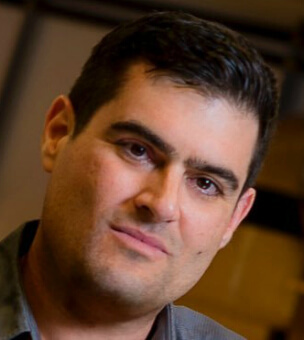714. The Origin of the Universe and the Quest for the Nobel Prize
Dr. Brian Keating

“I get paid to satisfy childhood curiosities, which is really the notion of understanding and building upon the knowledge that we have about where our universe came from, what it will be headed towards and what it is made of. And we do so along with a very large team of students and collaborators and professors around the world on all seven continents.”
Dr. Brian Keating is a professor of physics at the Center for Astrophysics and Space Sciences in the Department of Physics at the University of California, San Diego. He is a public speaker, inventor, and an expert in the study of the universe’s oldest light, the cosmic microwave background (CMB), using it to learn about the origin and evolution of the universe after the Big Bang. His book—”Losing the Nobel Prize: A Story of Cosmology, Ambition and the Perils of Science’s Highest Honor,” was selected as one of Amazon’s Ten Best Nonfiction Books of the Month.
How Did You Start Using Your Talents?
“After I got my first telescope around age 13, I became aware of the fact that in order to understand the stars, the heavens and their dimensions and properties, I would need to know more about mathematics than I was on track to learn. It was only because I had a special math teacher that I was allowed to take pre-calculus and trigonometry simultaneously during my junior year. That got me into the advanced placement class, and I’m proud to say I ended up getting the highest grade on the AP exam my senior year. So my late-blooming scholasticism was brought about because of my love of astronomy.”
The Most Impactful Turning Point?
“In 1993 when I started at Brown I was blown away by the fact that the Nobel Prize was awarded that year to a man named Russell Hulse, who was 45 at the time. But the work that resulted in his Nobel Prize was done when he was only 21, and it was in the field of astronomy. The fact that somebody my age accomplished this was profound to me because to a scientist, the Nobel Prize is as close to immortality as you can come, if you are not a spiritual person, as many scientists are not. So my work became a quest I embarked on to win a gold medallion someday in Stockholm.”
What Is Your Personal Vision Going Forward?
“I want to spread the knowledge of cosmology, astronomy and the kind of wonder that I feel to an enormous number of people around the world. So, I actually spend a lot of time with young people, not just my college students but even younger high school students. I have two daughters now and I know how important it is to reach children when they are young and to engage their minds and hearts into the pursuit of science.”
Steps to Success from Dr. Brian Keating
“I think the mind is the greatest gift that people have and I think the unwillingness to use it is oftentimes seated in fear: Fear of not only missing out, but the fear of success and of what happens after the success takes place. It’s much more comfortable to stay in your pajamas all day than really venture out and do something creative and take risks. But I firmly believe that a life worth living involves taking those risks.”
Connecting With Dr. Brian Keating
Website: http://BrianKeating.com
Facebook: facebook.com/DrBrianKeating
Twitter: @DrBrianKeating
LinkedIn: linkedin.com/drbriankeating
Book: briankeating.com/book
Subscribe to the Podcast Free:
Topics: Evolution of the Universe, Nobel Prize, South Pole


